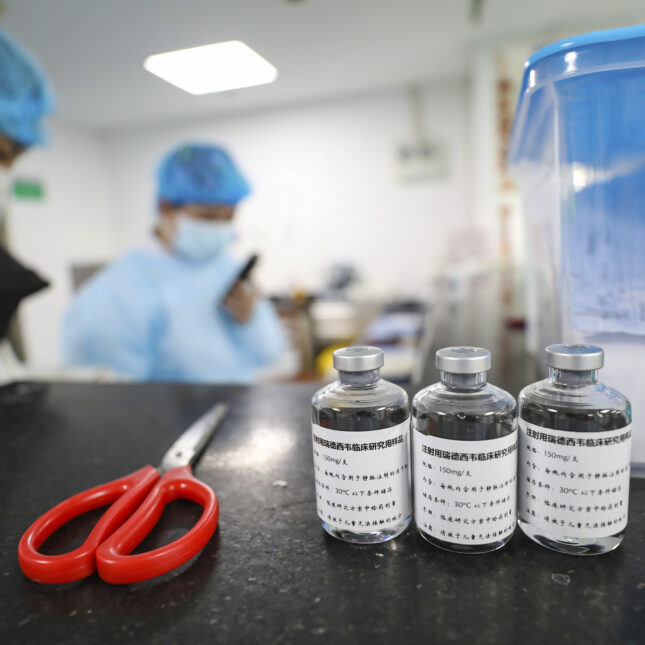
A potential antiviral drug, Remdesivir for the treatment of coronavirus has reportedly failed in its first randomised clinical trial, despite widespread hope of its potentiality.
This is according to a draft document accidentally published by the World Health Organization (WHO).
The document said the drug did not improve patients’ condition or reduce the pathogen’s presence in the bloodstream.
WHO spokesperson Daniela Bagozzi confirming the document said;
A draft manuscript was provided by the authors to WHO and inadvertently posted on the website and taken down as soon as the mistake was noticed. The manuscript is now undergoing peer review and we are waiting for a final version before WHO comments on it.
Gilead Sciences, the company behind the medicine, disputed how the now-deleted post had characterized the findings, saying the data showed a “potential benefit.”
Amy Flood, spokesperson for Gilead said;
The post included inappropriate characterization of the study. Because the study was stopped early because it had too few patients. It cannot enable statistically meaningful conclusions. However, trends in the data suggest a potential benefit for remdesivir, particularly among patients treated early in disease.
BBC reports that researchers in China carried out a study on 237 patients, giving the drug to 158 and comparing their progress with a control group of 79.
A summary of the experiment said Remdesivir was “not associated with a difference in time to clinical improvement” compared to the control, according to health news site Stat, which posted a screenshot.
After a month, 13.9 percent of the patients on Remdesivir had died compared to 12.8 per cent of those in the control group.
However, it is important to note that the study does not represent the final word on the matter and there are several large-scale trials in advanced stages that should soon provide a clearer picture.
Remdesivir, which is administered intravenously, was among the first drugs mooted as a treatment for the novel coronavirus and as such has great hopes riding on it.
Last week, Stat reported it had shown significant potency at a Chicago hospital where patients who are part of one of the major trials are being treated.
The US National Institutes for Health also reported it had proven effective in a small experiment on monkeys.
Remdesivir belongs to a class of drugs that act on the virus directly — as opposed to controlling the abnormal and often lethal autoimmune response it causes.
It mimics one of the four building blocks of RNA and DNA and gets absorbed into the virus’s genome, which in turn stops the pathogen from replicating.
